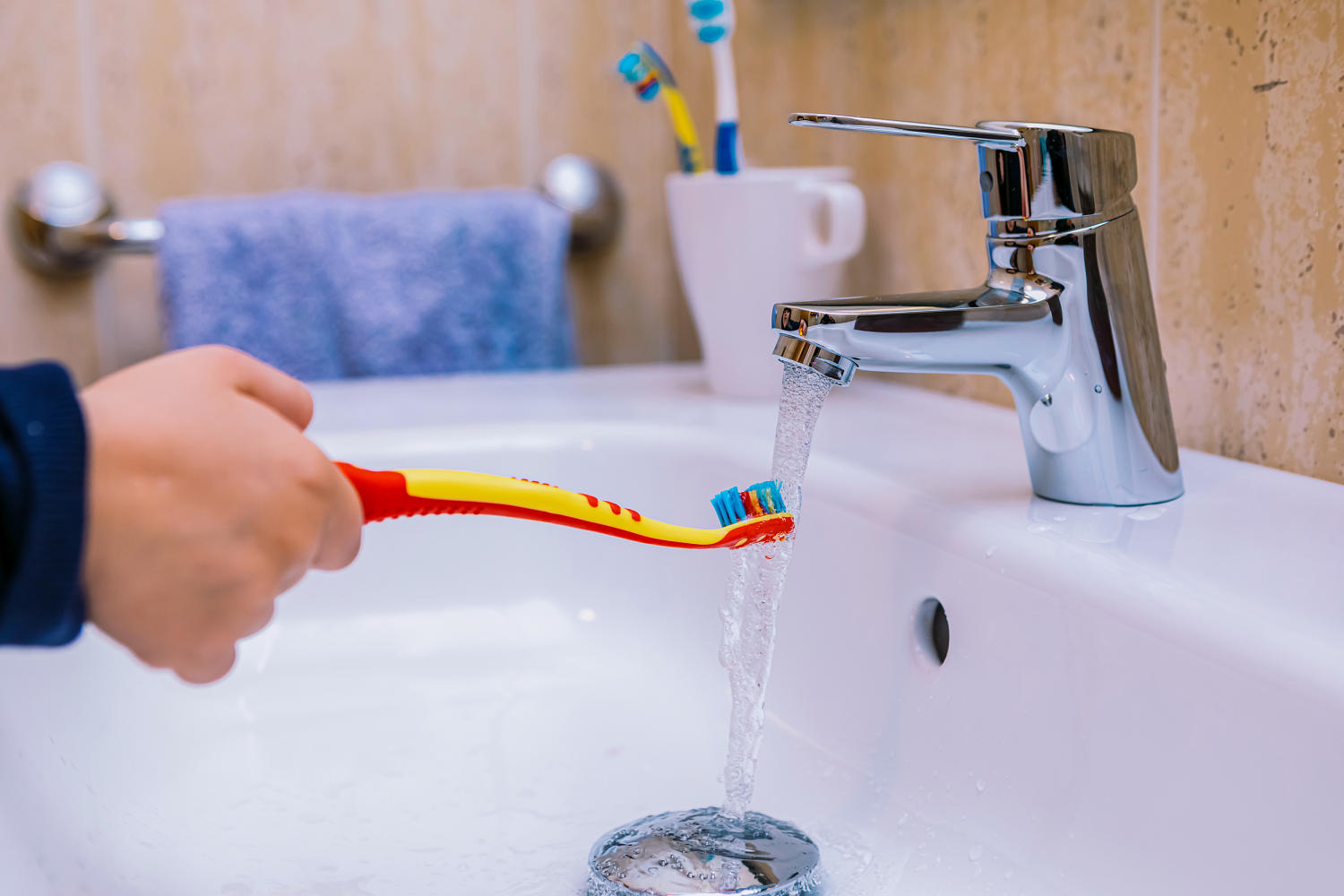
On Friday, Florida’s Surgeon General Joseph Ladapo announced that communities in the state shouldn’t add fluoride to drinking water because of what he called the “neuropsychiatric risk associated with fluoride exposure.”
Fluoride has long been proven to drive down tooth decay by strengthening teeth, which Ladapo acknowledged in the guidance.
But he added that there are also possible “safety concerns related to systemic fluoride exposure,” including reductions in IQ. While some studies have suggested potential links, the research is considered preliminary and far from definitive.
The American Dental Associationthe American Academy of Pediatrics and the Centers for Disease Control and Prevention support the use of fluoridated water, calling it one of the top 10 public health achievements of the past century. All cite studies that show it reduces tooth decay by 25%.
Once its benefits were proven, fluoride was also added to toothpaste and some mouthwashes. Dentists began giving kids fluoride treatments. Some communities are restoring fluoride to their water systems after seeing a rise in children’s cavities.
The anti-fluoride drumbeat has become louder in recent years. Communities have increasingly opted out of adding it to water, citing possible health risks.
There are ongoing, active investigations about safe levels of fluoride exposure.
“Rates of tooth decay are absolutely a concern,” said Dr. Bruce Lanphear, a professor of health sciences at Simon Fraser University in Canada. “But science is evolving. There’s growing evidence suggesting that fluoride may not be as safe as previously thought.”
Lanphear is an author of a 2019 study published in JAMA Pediatrics that found that mothers who drank fluoridated water while they were pregnant were more likely to have children with lower IQ levels.
He and his colleagues concluded that pregnant women may want to avoid fluoride, but stopped short of advocating for its removal from water systems.
About 70% of community water systems in Florida receive fluoridated water, according to the surgeon general’s release.
“It is clear more research is necessary to address safety and efficacy concerns regarding community water fluoridation,” Ladapo said in the release.
Katelyn Jetelina, an epidemiologist who tracks illnesses on her website, Your Local Epidemiologistreacted to Ladapo’s announcement Friday. “Replacing community good for individualism is a slippery slope,” she said.
Ladapo has previously been criticized for going against basic public health measures. Pediatricians were enraged in February, for example, when Ladapo left the decision on whether to quarantine children amid a massive meal outbreak to parents. He has questioned the effectiveness of Covid vaccines and threatened criminal charges against TV stations in Florida that aired an ad supporting the state’s abortion rights ballot measure until a federal judge issued a temporary restraining order against him.
He’s rumored to be on a list of people who could play a major health role in the next administration. Robert F. Kennedy Jr., President-elect Donald Trump’s pick for health and human services secretary, has said he would advise against fluoride being added to US. water systems.
Calls for reintroducing fluoride
Despite fluoride skeptics, some communities are actively working to get the mineral back into their water supply.
When residents of Buffalo, New York, realized in January 2023 that fluoride had been missing from their water supply since 2015 — uncovered by a local investigative reporter — demand to reinstate the cavity-fighting mineral to their drinking water was swift.
Parents said their kids’ teeth were full of cavities despite drinking and brushing regularly with what they thought for years was fluoridated water.
“There’s many stories of young children who have ended up in (the) hospital needing emergency dental surgery,” Robert Corp, a lawyer who filed a class-action lawsuit on behalf of Buffalo parents, told NBC affiliate WGRZ.
City leaders acted. Less than two years later, in late Septemberfluoride once again flowed from Buffalo taps.
Other cities, such as Abilene, Kansas, and McVille, North Dakota, have done the same, according to the American Dental Association.
‘Helping the most vulnerable’
According to the CDC, Kids in lower-income families have nearly three times higher rates of untreated cavities compared to children in higher-income families.
There are several reasons. Just 1 in 3 dentists in the US treat Medicaid patients. And nearly half of US kids do not receive regular dental care, according to the National Institute of Dental and Craniofacial Researchpart of the National Institutes of Health.
Adding fluoride to water systems “mitigates the impact of disparities in access to dental care,” said Jetelina, the epidemiologist. “This is one of the beauties of public health — a mainly invisible population intervention, helping the most vulnerable.”
Still, the scrutiny continues.
In September, a federal judge in California ruled that even though he couldn’t conclude with certainty that fluoridated water was a danger to public health, the US Environmental Protection Agency should strengthen water fluoridation regulations.
Another report stemming from that decision, looking specifically at kids’ IQ levels, is expected early next year.

